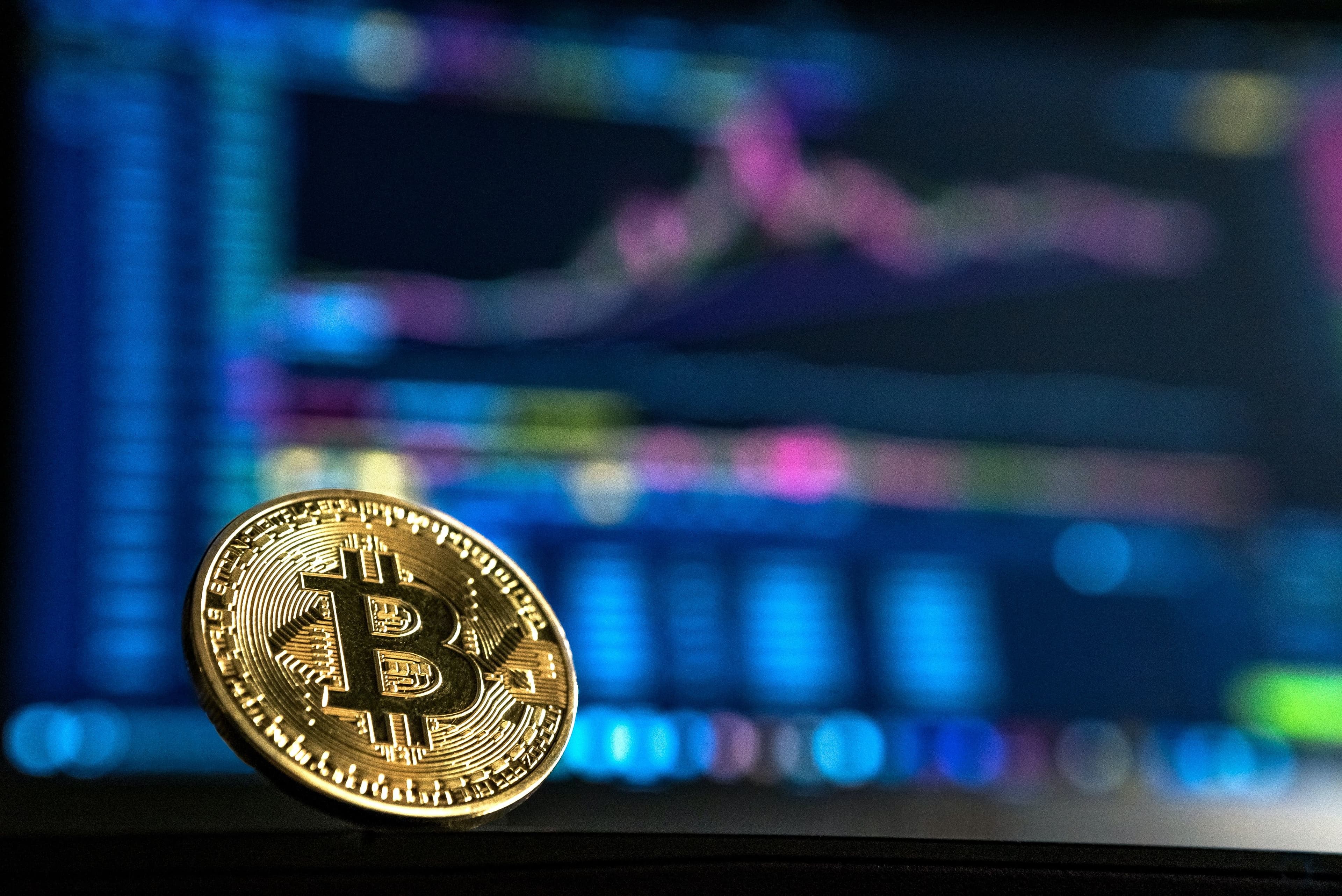
How to use Bitcoin?
We get a lot of questions about bitcoin; What is bitcoin?
How to buy bitcoin?, How to use bitcoin? You may also be wondering if you can use Bitcoin in Norway?
In this article, we will elaborate on the uses of Bitcoin, but also how to use it in a practical way.
What can Bitcoin be used for?
In general, Bitcoin has two different types of uses:
One is bitcoin as a store of value, and as an investment vehicle. One can invest in it and speculate in price increase.
The second is to use Bitcoin as a means of payment and currency. It is also easy to transfer bitcoins quickly and easily.
Here is a list of uses for Bitcoin.
- Means of payment
- Store of value
- A protection against inflation
- Easier and faster transfer of values regardless of country borders
- Loan collateral
- The need for a decentralized currency
Bitcoin as a means of payment
Bitcoin can be used as a means of payment in private agreements between two people or parties, if both parties are willing to do so. But there are also more and more companies opening up to take payment in Bitcoin. Well-known brands such as Wikipedia, Amazon, Burger King and others have stated that they accept Bitcoin as a means of payment. You can read a longer list of players who accept Bitcoin here: https://99bitcoins.com/bitcoin/who-accepts/
If you are going to shop at the grocery store and pay with bitcoins, it is also worth noting that it is rarely a question of paying with whole bitcoins, as the price of this is several hundred thousand kroner, but parts of a bitcoin (something you like to call "satoshis"). ”). For example, you will pay 0.00034 BTC for an item, and this amount will be exchanged for kroner or other fiat currencies.
Some of the criticism of Bitcoin as a means of payment has been that the transactions are expensive and slow, which in turn is due to the emphasis on decentralization and security. Should a company transfer a million to another country, Bitcoin will be both cheap and fast in relation to bank transfer. But how does it work for everyday use? Critics have pointed out that buying a cup of coffee with BTC is not practical. It is too expensive or slow in relation to the trade you make. But here the technology in "Lightning Network" comes into the picture and solves this problem. Payments in bitcoins (or satoshis that are part of a bitcoin) with Lightning Network are faster and cheaper than those run on the main blockchain. So in other words, you can actually use Bitcoin to buy a cup of coffee or shop at the grocery store
There are also several players in the crypto industry that offer VISA cards or similar that you can again link to your Bitcoin wallet with them. In that case, payment will work exactly as you are used to from your previous payment cards.
In addition to being a means of payment for goods and services, there are several players in the crypto industry who accept BTC as collateral for loans. In cases where you do not want to sell your bitcoin holdings, you can borrow money with security in this.
Storage of value and investment vehicle
When you save your hard earned money, it is for you to have this value available at a later date. At the very least, you want the money you set aside now to have the same purchasing power in the future, and you may even hope that it will increase in value.
How do you ensure that this value lasts over time? And how do you secure it against dangers such as loss of value, theft, major societal changes and generally the "tooth of time".
There are several ways to do this. Some put the money in the bank, some invest the money in stocks and mutual funds, some in real estate, others invest their money in commodities and so on.
Gold has historically been a means that has been suitable and widely used. Gold has survived the fall of civilizations, wars, unrest and hyperinflation. In addition, gold has been widely accepted as a means of payment worldwide. For example, it was common for nation states to own large gold reserves to store their assets and to back up their national currencies.
Since Bitcoin is a decentralized means of payment with minimal inflation, which can be accepted anywhere in the world, and which in theory can "live forever" on the internet, it has much in common with gold and is generally considered a good alternative for storing values over time. . Many also believe that BTC is an excellent way to protect against inflation in fiat currencies (such as NOK, Dollar and Euro).
One feature that eliminates the need for a key player is that the production and supply of bitcoins is tightly controlled by the underlying algorithm. With fiat currencies (dollars, euros and Norwegian kroner), central banks can issue as many currency units as they want, and they can try to influence the value of the currency or inflation. With Bitcoin, it mines a small number of new coins or blocks every 10 minutes, and will continue to do so at a declining rate until a maximum of 21,000,000 bitcoins are reached. Inflation in bitcoin is thus very low. This makes bitcoin attractive as a kind of digital gold, where in theory it will increase in value, given that demand grows and supply remains the same.
Looking back over the last 10 years, Bitcoin has been an investment that has surpassed all other investment opportunities in returns. And many expect that this increase in value will continue for many years to come as the adoption of Bitcoin and crypto increases. Therefore, Bitcoin is seen by many as a very good investment opportunity.
You can easily transfer values across national borders
When you transfer money to another account in Norway, it goes relatively quickly. At least if it happens during the weekdays, then the banks are open. But have you tried to transfer money to other countries? In that case, you would notice that this can take time, and that the transaction costs can be high. Sending Bitcoin, on the other hand, is no different than sending an email. It thus does not matter which countries the sender and receiver are located in, because the values are moved digitally on the blockchain between the parties' wallet addresses.
Decentralized digital currency
In cases where people live under authoritarian regimes with lack of human rights, or in countries with unstable economies and hyperinflation, Bitcoin can be used as a safe haven. Many people also lack a bank account and are kept out of the established financial system. For these people, Bitcoin can open up to participate in the economy in a new way.
Bitcoin emerged in 2008 as the very first cryptocurrency - a digital currency based on a decentralized and untrustworthy system. The idea was to remove the need for a central authority or third party (such as a bank), while ensuring that no duplicate or erroneous transactions were carried out (for example, "account overdrafts"). You can transfer directly to anyone, anywhere in the world, without going through third parties such as online banking, Paypal, Vipps or similar.
No institution or key player controls the Bitcoin network. The protocol is maintained by a group of volunteer coders, and is operated by an open network of dedicated computers around the world. This process is called decentralization, one of the most important features of the Bitcoin network. Since no key player approves the transactions, users do not need to identify themselves when sending bitcoins to others. It is thus more difficult for an authoritarian regime to exclude people from financial services and to participate in the economy.
But, that means Bitcoin is completely anonymous?
In practice, each user is identified by the address of their wallet, which can be used to track transactions. Police have also developed methods to identify users if necessary. Most exchanges are required by law to perform customer checks on their customers before they can buy or sell bitcoin. This means that an assigned Bitcoin address is most likely connected to a specific user. However, cryptocurrency wallets are not limited to exchanges or other online services, and a wallet generated by an anonymous user is quite difficult to track. Furthermore, every transaction in the network is completely transparent, which worries some proponents of anonymity. It is therefore difficult, but not impossible, to trace a bitcoin transaction to a specific person, so it is not true that bitcoin is completely anonymous and only used by criminals.
How to use Bitcoin - so convenient?
1. Get a Bitcoin wallet
To connect to the Bitcoin network, you need a digital wallet, a "Bitcoin wallet". You have two options when it comes to getting a Bitcoin wallet
You can either choose one of the many wallets available on the market. (Link to crypto wallet article). These can, for example, be downloaded as an app, an application on your PC or a physical digital wallet that you connect with USB. Here you transfer your bitcoins once you have bought them.
or...
You can create an account on an exchange, such as Firi, and let this exchange take care of the storage for you. In this case, you do not have to worry about the technicalities of having a Bitcoin wallet. You just need to keep track of your user and password at Firi. (Link to article about storing crypto at firi)
2. Buy BTC
You can buy bitcoin (BTC) safely and easily through the Firi app or our website. If you are not registered with us yet, you can do this with Vipps. Then you need to deposit money. Once your deposit has been received, you can buy bitcoin easily by clicking "Buy and Sell". Then you can either store your bitcoins with Firi, or you can transfer them to your own digital wallet.
Remember that buying and selling cryptocurrencies involves high risk, and that historical returns are never a guarantee of future returns.
3. Send, store, pay, lend or trade with your bitcoins.
Now that you have a bitcoin wallet with bitcoin (BTC) ready, you can take advantage of the many opportunities that exist to use your bitcoins. Or you can store them safely and “HODLE” (Hold on for dear life) them for the future.
